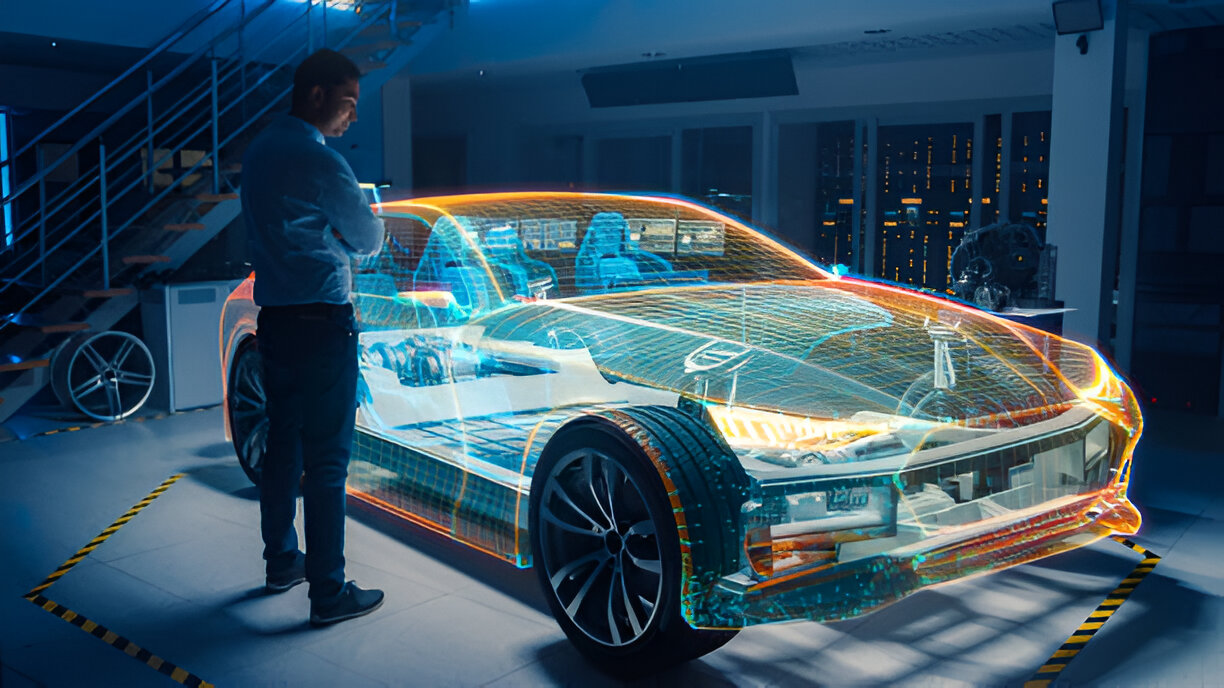The automotive industry is evolving at a rapid pace, and 2025 is set to be a landmark year. With sustainability, automation, and connectivity driving innovation, car manufacturers and tech companies are transforming vehicles into intelligent, efficient, and safer machines. Below are the top automotive technology trends revolutionizing the industry in 2025.
Table of Contents
1. Advanced Driver-Assistance Systems (ADAS) 2.0
ADAS technology is becoming more sophisticated, with features like adaptive cruise control, lane-centering assistance, and automated emergency braking now being enhanced with AI-powered decision-making. In 2025, we’ll see the next generation—ADAS 2.0—that enables semi-autonomous driving in complex urban environments, traffic jams, and highways.
2. Electric Vehicles (EVs) Go Mainstream
The EV revolution has officially reached a tipping point. In 2025:
- Major automakers are rolling out affordable, long-range EVs.
- Solid-state batteries are beginning to replace lithium-ion, offering faster charging times and extended lifespan.
- Global charging infrastructure is expanding, including ultra-fast DC chargers and wireless charging pads.
3. Vehicle-to-Everything (V2X) Communication
V2X allows vehicles to communicate with each other (V2V), traffic infrastructure (V2I), pedestrians (V2P), and the cloud (V2N). This enhances road safety, reduces congestion, and enables smarter navigation. Cities adopting smart traffic systems in 2025 will heavily rely on real-time V2X networks.
4. Autonomous Driving Progress
While full Level 5 autonomy isn’t widespread yet, 2025 will witness a surge in Level 3 and Level 4 autonomous vehicles, especially for:
- Urban shuttle services
- Long-haul freight
- Robo-taxis in controlled zones
These vehicles combine Lidar, radar, and AI to deliver near-human perception and response.
5. Software-Defined Vehicles (SDVs)
Vehicles are transforming into computers on wheels. SDVs allow:
- Over-the-air (OTA) updates for infotainment and safety features
- Personalization through software
- Subscription-based features like heated seats or driver assistance modes
This model boosts vehicle longevity and flexibility.
6. Sustainable Materials and Green Manufacturing
Beyond electrification, automakers are embracing recyclable interiors, bio-based plastics, and carbon-neutral manufacturing processes. Brands are competing to out-green each other with innovative materials like vegan leather and algae-based foam.
7. AI and Machine Learning in the Driver Experience
AI is enhancing everything from predictive maintenance alerts to personalized infotainment recommendations. Some cars now recognize driver moods through facial analysis and adapt cabin settings accordingly.
8. Augmented Reality Dashboards and HUDs
Head-up displays (HUDs) and augmented reality dashboards are becoming standard in premium vehicles. They provide:
- Navigation overlays directly on the windshield
- Real-time alerts (pedestrian detection, collision warnings)
- 3D visualizations of traffic and hazards
9. Cybersecurity in Connected Cars
As vehicles become more connected, they also become vulnerable. In 2025, automotive cybersecurity is a top priority, with:
- Encrypted data communication
- Secure gateways for OTA updates
- Blockchain-based validation systems
10. Shared Mobility and Subscription Services
With urbanization rising, car ownership models are shifting. Subscription services offer flexible access to fleets, including EVs, hybrids, and even high-performance cars. Car-sharing platforms are also integrating AI for smarter fleet management and user experiences.
Final Thoughts
2025 marks a thrilling chapter in automotive history. With breakthroughs in electrification, automation, connectivity, and sustainability, the road ahead is smarter, safer, and greener. Whether you’re a driver, investor, or auto enthusiast, these innovations are redefining how we move, drive, and interact with vehicles.


